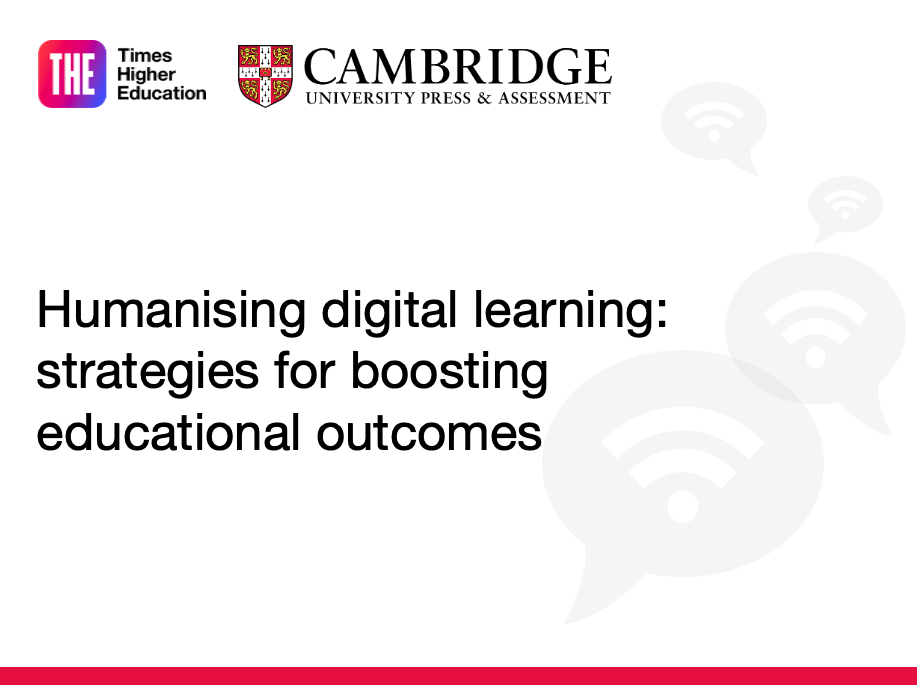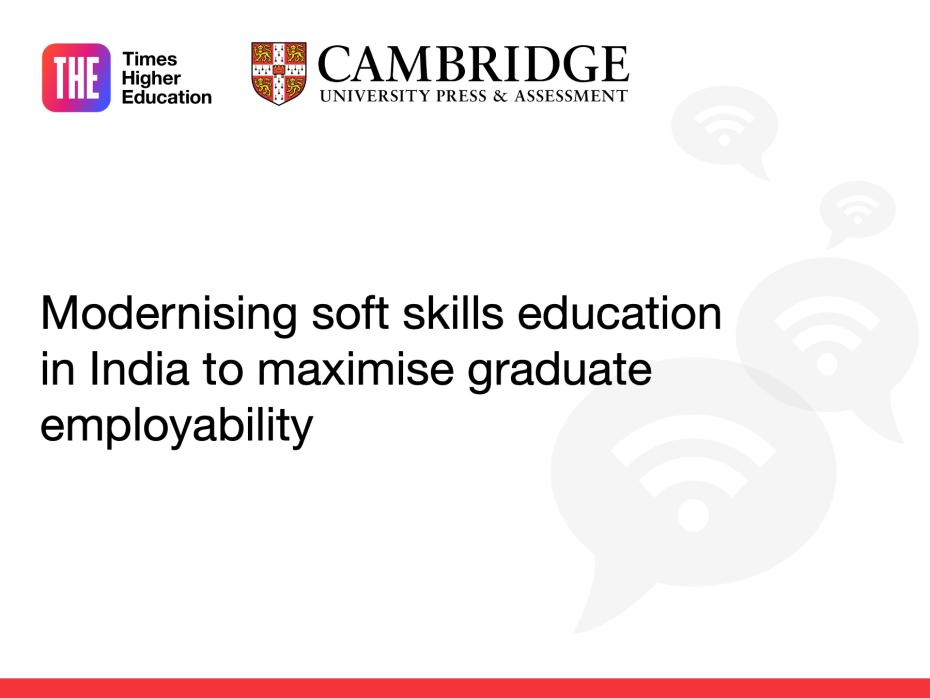Providing some form of digital learning and assessment is no longer just an added benefit for higher education institutions, but a fundamental component of teaching and learning. As a result, it is increasingly essential that digital learning is led by those who will be using it.
During a Times Higher Education webinar held in partnership with Cambridge University Press & Assessment, a panel of experts from academia and industry discussed how to ensure universities take a human-centred approach to digital learning, particularly in the context of English-language study.
The panellists were keen to define what a human-centred approach to digital learning means. “We usually talk about learner-centred approaches for digital learning, but when you say human-centred approaches, that takes into account the teachers as well,” said Dana Abdulrahim, assistant professor and director of the English Language Center at the University of Bahrain. She also highlighted the significance of empowering learners by allowing them to choose their own pace, time and materials for learning.
“A human-centric approach means that the technology itself is built by humans for the purposes of human activity,” said Nick Saville, director of thought leadership at Cambridge University Press & Assessment.
Language teaching and learning lends itself to a human-centred approach as it’s a communicative way of studying, something Saville was keen to emphasise. “While edtech is relatively new – particularly AI – a learner-centred approach itself is not new. We’ve been working on this as a continuation of the action-oriented approach to language learning that dates back to the 1970s, with the focus on fostering communication skills and language proficiency that’s relevant and applicable to real-life situations of learners,” he said.
Another benefit of digital language tools is the ability to collect data about – and for – individual learners. “The more data you have, the more powerful you are,” said Taner Yapar, director of the department of foreign languages at TOBB University of Economics and Technology. “Digital platforms with assessments as part of the learning process are constantly providing you with information about [students’] learning trajectories.” This enables teachers to see which students are struggling and, conversely, which are excelling, to enable greater personalisation in learning and delivery.
Saville discussed some of the tools that Cambridge offers to support language learners and “create an ecosystem of learning”. These include Cambridge One, a mobile-friendly digital learning environment that includes English-language test practice, Linguaskill, an online, multilevel test for universities and employers to check the English proficiency of students and employees, and Write & Improve, a free tool that helps English learners practice writing tasks at different levels of proficiency, automatically scoring the task. Teachers can then give personalised guidance to students based on their scores.
“Digital platforms are there to support classrooms, not to take classrooms away and get rid of teachers. It’s the human and the machine combination – the hybrid – which we’re supporting,” Saville concluded.
The panel:
- Dana Abdulrahim, assistant professor and director of the English Language Center, University of Bahrain
- Julia Gilmore, branded content manager, EMEA & the Americas, THE (chair)
- Nick Saville, director of thought leadership, Cambridge University Press & Assessment
- Taner Yapar, director of the department of foreign languages, TOBB University of Economics and Technology
Watch the webinar on demand above or on the THE Connect YouTube channel.
Find out more about Cambridge University Press & Assessment, English.


comment